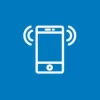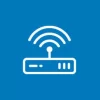Today, there are options for connecting your phone, tablet or laptop to the Internet for free almost everywhere. If you take advantage of these, you can generally go without paying for an expensive unlimited mobile data plan. This guide from moneyland.ch gives you a good overview of where and how you can use free Internet.
On the go
Freesurf is available on some long-distance SBB/CFF trains. You need to download the Freesurf app from the SBB/CFF. You also need to have a mobile plan from a third-party mobile service provider which partners with the SBB/CFF for its Freesurf offer. Among them are the biggest Swiss providers Salt, Sunrise and Swisscom, as well as several smaller brands. Your device connects to the Internet over your mobile service network as usual, but as long as you are on the train, the data is not charged to your mobile plan. You do not pay for the data you use, and it is not deducted from your mobile plan’s data allowances.
The SBB offers free WLAN Internet connections in some trains and at many Swiss train stations. Zurich Airport also offers free WLAN. Many bus companies – including Postauto/Carpostal and Flixbus – have free Internet connections for passengers in their buses.
You can also connect to free WLAN hotspots in many public spaces and even on some Swiss ski slopes.
Limited WLAN
When you use public WLAN connections, you should be aware that there may be possible limitations on how you can use the Internet. Some providers block access to streaming platforms to prevent hogging of the bandwidth by video streamers. Internet connections may also be less reliable than home Internet. Getting online via free WLAN while traveling – on buses, for example – can be particularly sketchy. Disruptions may occur when passing through regions where the vehicle’s connection to mobile networks is poor, or when too many people in the vehicle use the connection simultaneously.
In restaurants
Free Wi-Fi is a basic service at many establishments. Restaurants, cafés, and hotels normally offer their guest free Internet access. In some cases, you can just connect to the public network, but most of the time you will have to enter your phone number or booking number in order to use hotspots.
Some establishments require a password for Internet access. If this is not shown on a sign or on your receipt, you can generally get it from one of the employees.
While shopping
Large Swiss shopping malls normally offer free Internet via WLAN throughout the entire mall. There are also supermarkets like Coop and Migros which offer their customers free Internet access.
How to use public Internet hotspots securely
Using public WLAN hotspots exposes you to a number of security issues. Unencrypted connections in particular carry a theoretical risk of exposure to data interception by hackers. For that reason, sticking to websites with secure encryption is even more important when you use public Internet connections. Secure websites are recognizable by the “https” at the start of their URLs (the “s” in “https” standard for “secure”). If file or directory sharing is active on your device, make sure to deactivate it before you use public networks. If you do not, other network users may be able to access your files. Using a VPN tunnel for the connection, when possible, offers additional protection. You should also take steps to prevent your devices from automatically reconnecting to public networks. If you do not, third parties can connect to your device by replicating a public WLAN connection with the same login data. When you connect to a hotspot for the first time, your device generally lets you choose whether or not to automatically reconnect to that network in the future.
At school
Educational facilities normally run their own wireless networks, but free Internet access may be limited to specific people. For example, the University of Zurich only allows students and employees to access its hotspots.
At work
Many employers offer their employees free wireless Internet connections. Many run a separate network for employee’s personal use in addition to the company network.
It is also worth noting that some large Swiss companies have partnerships with telecom service providers by which their employees can purchase discounted mobile plans. Not all of these offers are good deals, so comparing mobile plans is important. Depending on the demands of your job, your employer may even consider paying for your mobile plan or at least covering part of the cost.
While visiting friends
Chances are, your friends and family have wireless Internet access in their homes which you can use on visits. Just ask them whether they mind you using their connections, and how you can connect.
If your friends have unlimited mobile data, you could also ask them to share their connection by activating the mobile hotspot function on their phones. You can then get online by connecting to their phone as you would to any WLAN hotspot.
At home
Even within your own home, there are options for getting online for free. For example, if you have chilled neighbors, they may be willing to share their WLAN login information with you so that you can use their Internet connection.
If you live in a building which also houses an establishment which runs a public hotspot – a medical practice, restaurant, or supermarket, for example – you may be able to use this to get online.
More on this topic:
Compare Swiss home Internet plans now
Tipps for getting the most from mobile data

 Deal of the Day
Deal of the Day 









